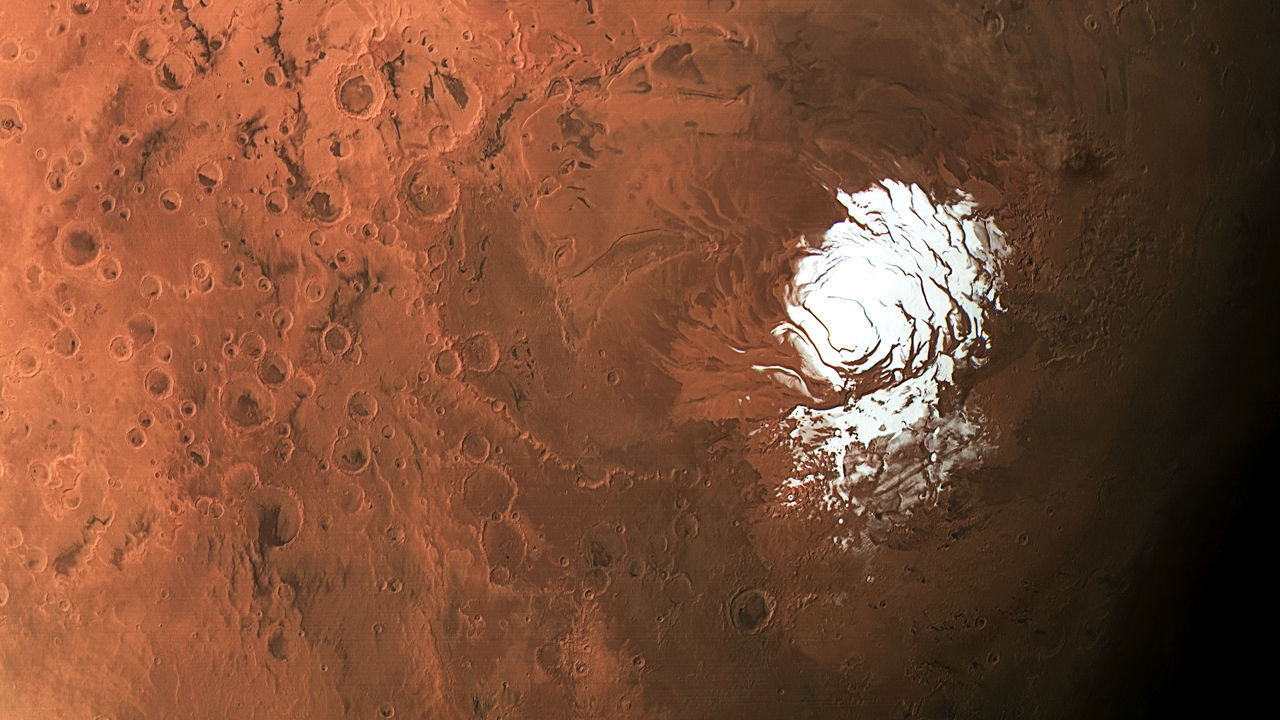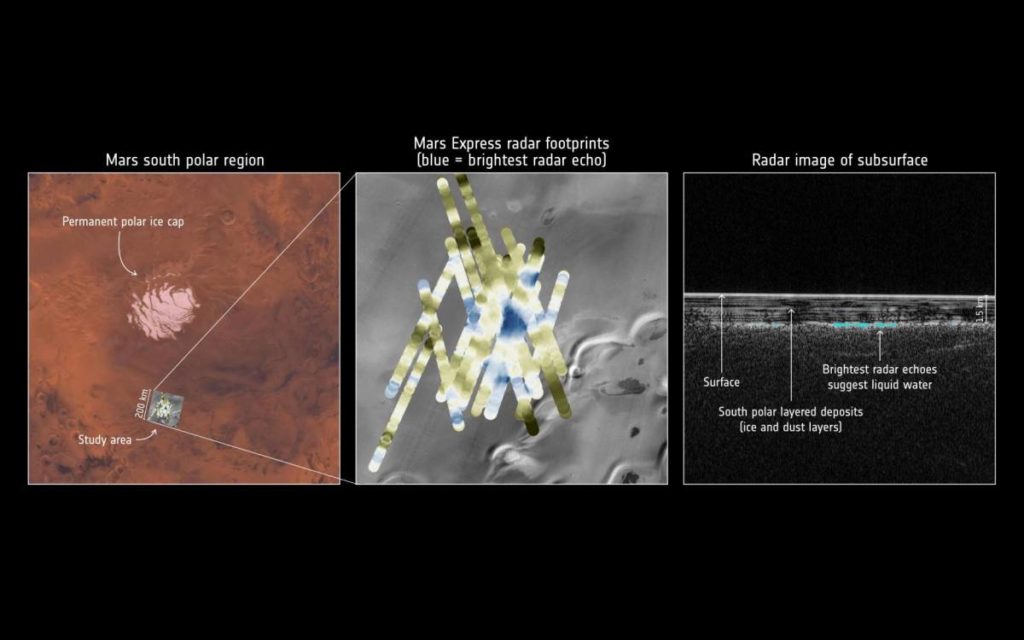Liquid Water Was Discovered On Mars – Evidence Of A Pond Of Water Found, Says European Space Agency

Well, it seems that the red planet hosts one of the key elements that sustain life – water. An underwater lake that’s extended on 20 km is believed to be underneath the south polar ice cap on Mars.
This surprising discovery was made with the help of data collected by Mars Express using radar signals that have traveled through underground layers of ice. There’s definitely evidence of a pond there.
It’s interesting to note that the European Space Agency launched the mission back in 2003 to orbit Mars with the assistance of more national agencies, the whole industry and the scientific community as well.
“Twenty-nine dedicated observations were made between 2012 and 2015 in the Planum Australe region at the south pole using the Mars Advanced Radar for Subsurface and Ionosphere Sounding instrument, MARSIS,” the ESA states on its website.
“A new mode of operations established in this period enabled a higher quality of data to be retrieved than earlier in the mission.”
Before this massive discovery, there was already more evidence that Mars’ surface has had a watery past and this came in the form of vast dried-out river valley networks and colossal overflow channels that have been imaged by the orbiting spacecraft.
Minerals which form in the presence of water, also found
ESA says that orbiters and landers with rover have been exploring the Martian surface and they also managed to discover minerals that are formed just when water is present in the area.
It’s worth noting that the planet’s climate has changed a lot in its 4.6-billion year history and this means that surface water is not able to exist on the planet anymore.
ESA continued and noted that the presence of liquid water at the base of the polar ice caps had been suspected for a really long time.
We already know from our studies down here on Earth that the melting point of water decreases under the pressure of an overlying glacier.
ESA also said that the presence of salts on the red planet could reduce even more the melting point of water, keeping it liquid even at below freezing temperatures.

0 comments